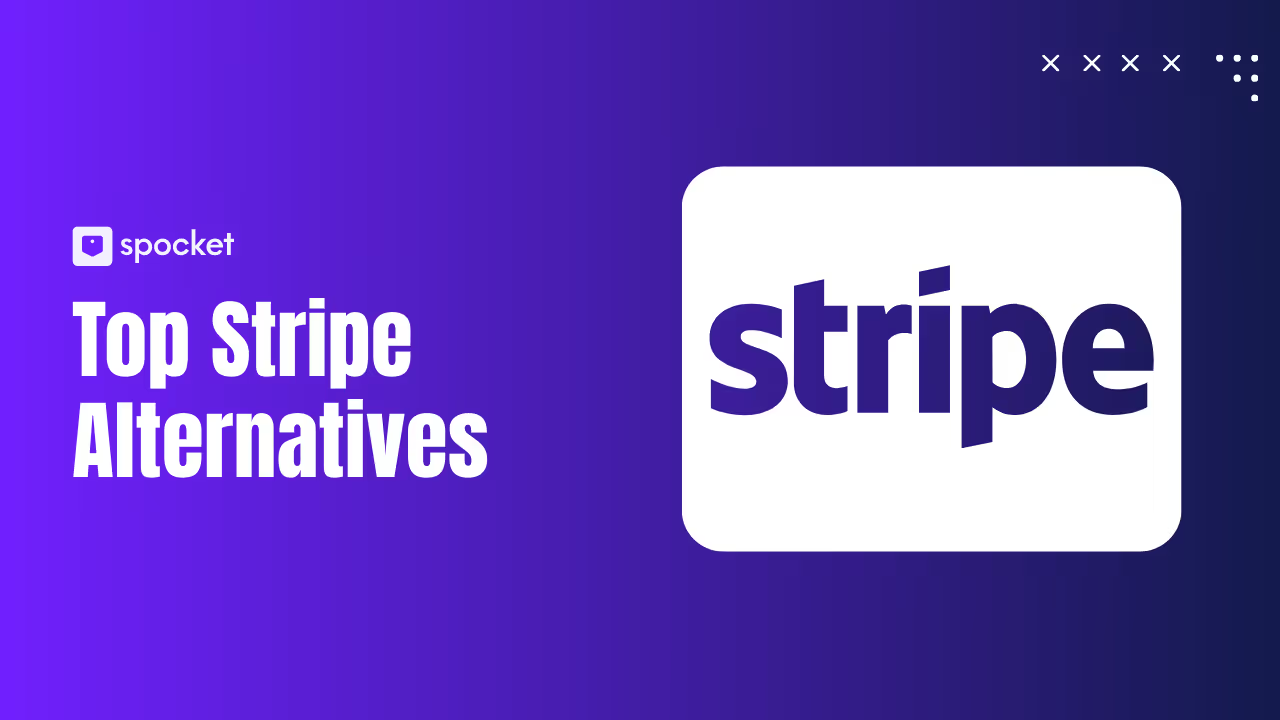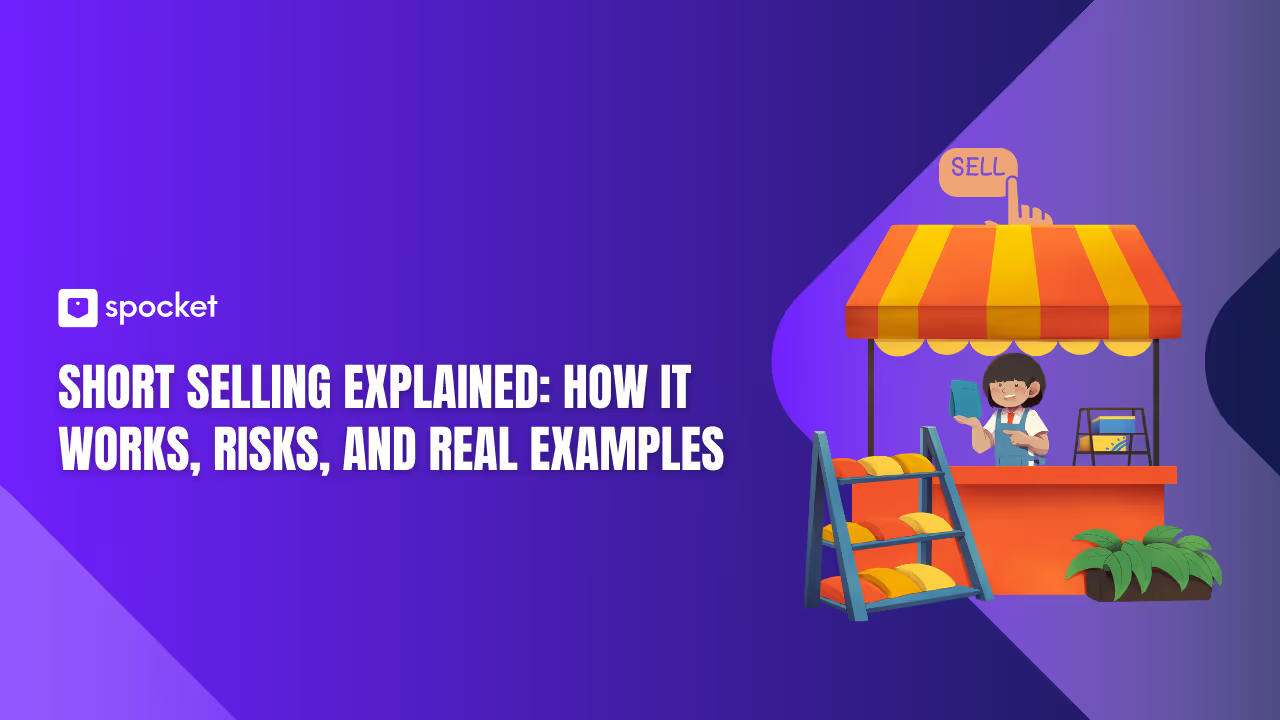Best Stripe Alternatives in 2026
Explore the best Stripe alternatives in 2026, comparing top payment gateways like Square, PayPal, Shopify Payments, and more. Find the right solution for your business needs today!


When it comes to choosing a payment processor for your business, it’s important to explore alternatives to Stripe. While Stripe has been a top choice for many online merchants, it's not always the best fit for every business. Whether you're a small business owner, a large enterprise, or someone looking for specific features, finding the right payment solution can make all the difference. In this guide, we'll cover the top Stripe alternatives available in 2026, focusing on their features, pricing, and what makes them stand out. Whether you're in e-commerce, SaaS, or offering other services, we've got the solutions to fit your needs and help you make an informed decision.
Why Consider Stripe Alternatives?
Stripe has become a popular choice for businesses worldwide, but it isn’t always the best fit for everyone. As your business grows or if your needs change, you might find that other payment processors offer better solutions. Let's dive into why exploring Stripe alternatives can be a smart move for your business in 2026.
Stripe Limitations
- Higher Transaction Fees: Stripe charges a standard fee of 2.9% + $0.30 per successful card transaction, with additional fees for international payments and currency conversions.
- Limited Global Availability: Stripe operates in 46 countries, which may restrict businesses aiming for a global customer base.
- Account Holds and Suspensions: Stripe has been known to freeze or hold funds if it detects unusual activity or if a business operates in a high-risk industry.
- Complex Integration for Non-Developers: While Stripe offers robust APIs, businesses without technical expertise may find the integration process challenging.
- Limited Customer Support: Some users have reported delays in Stripe's customer support response times, which can be problematic during critical issues.
Top 10 Stripe Alternatives in 2026
Looking for the best Stripe alternatives in 2026? You’re not alone. Stripe remains a top choice for payment processing, but it’s not always the perfect fit for every business. Maybe you want lower fees, faster payouts, or just a platform that’s easier to use for your e-commerce store. Let’s break down the top Stripe alternatives so you can find the right payment solution for your business-whether you run a small shop, a SaaS startup, or a growing online store.
1. Square – Best Overall Stripe Alternative
Square stands out as the best overall Stripe alternative for 2026. If you want a payment solution that works just as well in person as it does online, Square is a strong contender. It’s trusted by millions of businesses worldwide and is especially popular among small businesses and retailers.

Key Features
- All-in-one payment processing for online and in-person sales
- Free Point of Sale (POS) app and hardware options
- Simple invoicing and recurring billing tools
- Real-time sales and inventory tracking
- Integrated payroll, employee, and customer management
- Fast deposits (as soon as next business day)
- Seamless integration with e-commerce platforms
- Advanced reporting and analytics dashboard
Pros
- Seamless integration for both online and offline sales
- No monthly fees for the basic plan
- Fast setup and user-friendly interface
- Wide range of business tools (like payroll and invoicing)
Cons
- Processing fees are similar to Stripe
- Advanced features may require paid plans
- Limited international support compared to Stripe
Fees
Square charges 2.9% + 30¢ per online transaction. There’s no monthly fee for the basic plan, but advanced features come with a monthly cost starting at $29
Why Choose Square?
If you want a payment gateway that’s easy to set up and manage, and you value having both POS and online options, Square is a great pick. It’s also ideal for businesses that want a one-stop shop for payments, payroll, and customer management.
2. PayPal – Best for Quick E-commerce Integration
PayPal is one of the most recognized names in online payments and a popular Stripe alternative in 2026. If you want to get your e-commerce store up and running with minimal fuss, PayPal makes it easy.

Key Features
- Instant setup and global brand recognition
- One-click checkout for faster customer payments
- Supports credit/debit cards, PayPal balance, and Pay Later options
- Easy integration with Shopify, WooCommerce, BigCommerce, and more
- Buyer and seller protection for secure transactions
- Invoicing, subscriptions, and recurring payments
- Mobile payments and PayPal.me payment requests
- Multi-currency support for international sales
- Detailed transaction and sales reporting
Pros
- Huge global reach
- Trusted by buyers and sellers alike
- Fast, easy integration with most e-commerce platforms
- Strong buyer and seller protection
Cons
- Slightly higher transaction fees than some competitors
- Account holds and freezes can happen
- Customer support can be slow at times
Fees
PayPal charges 3.49% + fixed fee per transaction for online sales. There are no monthly fees for basic business accounts
Why Choose PayPal?
If you want to offer a payment method that your customers already know and trust, PayPal is a solid choice. It’s perfect for e-commerce businesses that want to get started quickly and don’t want to worry about technical setup.
3. Helcim – Best for Minimizing Transaction Fees
Helcim is gaining traction as a Stripe alternative for businesses that want to keep more of their money. It’s especially popular among small businesses and startups looking for transparent, low-fee payment processing.

Key Features
- Transparent interchange-plus pricing
- Free invoicing, inventory, and customer management tools
- Supports both online and in-person payments
- Customizable checkout and payment pages
- Fast deposits, usually within 1-2 business days
- Advanced fraud detection and security features
- Excellent live customer support
- Detailed reporting and analytics dashboard
Pros
- Lower transaction fees with transparent pricing
- No monthly or hidden fees
- Free access to business management tools
- Excellent customer support
Cons
- Not as well-known as Stripe or PayPal
- Slightly more complex pricing structure
- Fewer integrations with third-party platforms
Fees
Helcim’s fees are typically lower than Stripe and PayPal, with rates starting at interchange plus 2.27% + 25¢ per transaction for visa and mastercard. There are no monthly fees, which means you only pay for what you use
Why Choose Helcim?
If you’re tired of high payment processing fees eating into your profits, Helcim is a smart choice. It’s ideal for businesses that process a high volume of transactions and want predictable, low-cost fees.
4. Shopify Payments – Best for Shopify Merchants
If you run your store on Shopify, Shopify Payments is the most seamless Stripe alternative you can choose. Over 4.8 million stores trust Shopify in 2026, and its payment solution is built right into your dashboard. You skip the hassle of third-party integrations and get paid directly through your Shopify admin. Shopify Payments supports all major cards and offers quick payouts, fraud analysis, and easy chargeback management. It’s perfect for anyone who wants to keep things simple and efficient.
Key Features
- Fully integrated with Shopify’s e-commerce platform
- Supports all major credit and debit cards
- Fast payouts (as soon as the next business day)
- Built-in fraud protection and chargeback management
- No extra transaction fees when you use Shopify Payments
Pros
- No need for third-party payment gateways
- Simple setup and user-friendly interface
- Real-time sales tracking
- Reduces extra transaction costs
Cons
- Only available in select countries
- Charges extra fees if you use other gateways
- Rigid fee structure-fees don’t decrease as you grow
Fees
- 2.9% + 30¢ per online transaction (Basic plan)
- 2.6% + 30¢ (Shopify plan)
- 2.4% + 30¢ (Advanced plan)
- Extra 1%–2% fee if you use a third-party gateway
Why Choose Shopify Payments?
If you want a plug-and-play payment solution that works flawlessly with your Shopify store, this is your best bet. It keeps your payment process smooth and your reporting in one place.
5. Adyen – Best for Large Enterprises
Adyen is known for powering payment processing for big brands and global businesses. If you’re scaling fast or already have a large operation, Adyen is a Stripe alternative that brings enterprise-grade reliability. It supports payments in over 150 currencies and offers advanced risk management, making it ideal for international e-commerce and SaaS companies.

Key Features
- Accepts payments in 150+ currencies
- Advanced fraud detection and risk management
- Unified commerce for online and in-person sales
- Customizable checkout for a seamless customer experience
- Real-time reporting and analytics
Pros
- Scalable for high-volume and global businesses
- Highly secure and PCI-compliant
- Customizable to fit complex business needs
- Excellent support for recurring payments and subscriptions
Cons
- Requires technical setup and integration
- Not ideal for small businesses
- Minimum invoice requirements may apply
Fees
- Processing fee of $0.13 + a percentage of fee depending upon payment method
Why Choose Adyen?
If you run a large or international business and need a payment gateway that scales with you, Adyen is a top Stripe alternative. It’s built for reliability, flexibility, and global reach.
6. Braintree – Best for Seamless Integration
Braintree, a PayPal service, is a favorite Stripe alternative for businesses that want flexibility and deep integration options. It supports a wide range of payment methods, including credit cards, PayPal, Venmo (US), wallets, and even local payment options. Braintree’s APIs are developer-friendly, making it a great pick for SaaS companies and online stores that want to customize their checkout.

Key Features
- Accepts cards, PayPal, Venmo, wallets, and local payment methods
- Recurring billing and subscription management
- Advanced fraud protection tools
- Developer-friendly APIs for custom integration
- Detailed reporting and analytics
Pros
- Supports a wide range of payment methods
- Flexible and customizable for unique business needs
- No monthly fees for standard accounts
- Strong support for global payments
Cons
- Can be complex for beginners
- Approval process may take time
- Some features require technical know-how
Fees
- 2.89% + 29¢ per transaction (standard rate)
Why Choose Braintree?
If you want a payment processor that offers deep customization and supports multiple payment types, Braintree is a smart Stripe alternative. It’s especially good for SaaS and e-commerce businesses with specific integration needs.
7. Payoneer – Best for International Payment Solutions
Payoneer is a top Stripe alternative for businesses that operate globally or work with international freelancers. It lets you receive payments in multiple currencies and withdraw funds to your local bank account. Payoneer is especially popular among marketplaces, cross-border e-commerce, and remote teams.

Key Features
- Receive and send payments in 150+ currencies
- Local receiving accounts in USD, EUR, GBP, and more
- Mass payout solutions for freelancers and vendors
- Low-cost currency conversion
- Secure and compliant with global standards
Pros
- Excellent for international businesses and freelancers
- Easy to set up and use
- Supports mass payouts and cross-border payments
- Competitive exchange rates
Cons
- Not ideal for in-person retail
- Some fees for currency conversion and withdrawals
- Limited in-person payment support
Fees
- Receiving payments: Free from other Payoneer users, 1% for US ACH payments
- For credit card payments: 3.20%+$0.49
Why Choose Payoneer?
If your business is global or you pay international vendors, Payoneer makes cross-border payments simple and affordable. It’s a Stripe alternative built for the modern, borderless economy.
8. Wise – Best for Low-Cost Cross-Border Payments
Wise, formerly TransferWise, is a top Stripe alternative if you need affordable, transparent international payments. Wise makes sending and receiving money across borders easy, using real exchange rates with no hidden markups. Over 16 million people and businesses trust Wise for its multi-currency accounts and low-fee transfers. You always see the fee upfront, so there are no surprises. Wise is perfect if your business works with global clients, remote teams, or international suppliers.

Key Features
- Real mid-market exchange rates (no hidden fees)
- Multi-currency accounts (hold and manage 40+ currencies)
- Local bank details in major currencies (USD, EUR, GBP, and more)
- Fast, secure international transfers to 160+ countries
- Transparent pricing with volume discounts for large transfers
Pros
- Lowest international transfer fees (from 0.33% per transfer)
- No monthly account fees for personal use
- Free to receive money in most currencies
- Great for freelancers, remote teams, and global e-commerce
Cons
- No in-person payment processing
- Some fees for certain types of incoming payments
- Not a full-featured payment gateway for online stores
Fees
- Sending money: From 0.57% for US and varies depending on currency
- Receiving money: $6.11 for USD wire and swift payments
- Currency conversion: From 0.57% of the amount
Why Choose Wise?
If you want to save money on cross-border payments and get paid in multiple currencies, Wise is a smart Stripe alternative. It’s ideal for global businesses, freelancers, and anyone tired of high bank fees.
9. Klarna – Best for Buy Now, Pay Later Options
Klarna stands out as a Stripe alternative for businesses that want to offer flexible payment options like Buy Now, Pay Later (BNPL). Klarna lets your customers split purchases into interest-free payments, boosting conversions and average order value. Klarna handles the risk, so you get paid upfront while your customers pay over time.

Key Features
- Buy Now, Pay Later and Pay in 4 options
- No risk to merchants-Klarna pays you in full
- Seamless integration with top e-commerce platforms
- Advanced fraud protection and customer support
- Customizable checkout experience
Pros
- Increases sales and reduces cart abandonment
- Attracts younger shoppers looking for flexible payments
- Klarna handles all customer payments and risk
- Easy integration with Shopify, WooCommerce, BigCommerce, and more
Cons
- Not available in all countries
- Fees are higher than standard card processing
- Payouts may take a few days
Fees
- Merchant fees typically range from 3.29% to 5.99% + 30¢ per transaction (varies by country and plan)
Why Choose Klarna?
If you want to boost sales by giving customers more ways to pay, Klarna is a top Stripe alternative. It’s especially useful for online stores targeting younger or budget-conscious shoppers.
10. Authorize.net – Best for Classic Payment Gateway Solutions
Authorize.net is one of the oldest and most trusted payment gateways, making it a reliable Stripe alternative for businesses that want stability and flexibility. It’s perfect for established businesses, B2B companies, or anyone who wants a traditional payment gateway with strong support. Authorize.net supports all major cards, digital wallets, and e-checks, and it integrates with most shopping carts and POS systems.

Key Features
- Accepts credit cards, e-checks, and digital wallets
- Advanced fraud detection suite
- Recurring billing and subscription management
- Virtual terminal for phone and mail orders
- 24/7 customer support
Pros
- Highly reliable and secure
- Works with almost any merchant account
- Supports recurring payments and invoicing
- Great for both online and in-person payments
Cons
- Monthly gateway fee applies
- Setup can be technical for beginners
- Interface feels dated compared to newer platforms
Fees
- $25 monthly gateway fee
- 2.9% + 30¢ per transaction (all-in-one plan)
- Lower rates available if you bring your own merchant account
Why Choose Authorize.net?
If you want a proven, stable payment gateway with decades of experience, Authorize.net is a solid Stripe alternative. It’s ideal for businesses that need advanced features, strong security, and compatibility with existing merchant accounts.
11. PayCompass – Best for Reliable, Business-First Payment Solutions
PayCompass is emerging as a trusted Stripe alternative in 2026 for businesses that prioritize reliability, flexibility, and industry-friendly support. While Stripe is known for sleek tools and developer features, many businesses experience challenges like sudden account freezes or payout holds. PayCompass solves this by offering customized payment solutions with a focus on long-term business stability and tailored service—making it especially valuable for high-risk, fast-scaling, or service-based businesses.
Key Features
- High approval rates, even for businesses in restricted or high-risk industries
- No unexpected shutdowns or fund holds
- Custom-fit merchant accounts designed around your business model
- Low and transparent processing fees
- Same-day or next-day payouts
- Personalized support and onboarding
- ACH, credit card, eCheck, and international payment support
- Scalable solutions for startups to enterprise-level companies
Pros
- Works with industries that Stripe often rejects
- Predictable cash flow through faster payouts
- Strong customer support and industry expertise
- Fewer disruptions to operations compared to Stripe
- No hidden fees or surprise freezes
Cons
- Best suited for growing or established businesses with consistent volume
- Onboarding process includes a review to tailor the right solution
- Slightly less instant setup compared to self-serve platforms like Stripe
Fees
Pricing is customized based on business type and volume, with interchange-plus and flat-rate options available. PayCompass emphasizes transparent pricing—no hidden fees, no surprise charges.
Why Choose PayCompass?
If you’ve outgrown Stripe or simply need a reliable, scalable payment partner that won’t flag or freeze your business, PayCompass is a smart move. It’s ideal for companies seeking stable payment processing, better support, and solutions tailored to real-world operations.
Key Features to Look for in a Stripe Alternative
When evaluating payment processors beyond Stripe, it's crucial to assess several key features to ensure they align with your business needs.
Pricing and Fees
Transparent and competitive pricing is fundamental. Look for providers that offer clear fee structures, including transaction fees, setup costs, and any hidden charges. For instance, Helcim offers interchange-plus pricing, which can be more cost-effective for high-volume businesses compared to Stripe's flat-rate fees.
Ease of Use and User Experience
A user-friendly interface can significantly impact your operational efficiency. Choose platforms that provide intuitive dashboards, easy integration with your existing systems, and minimal technical complexity. Square, for example, is renowned for its straightforward setup and seamless integration with various e-commerce platforms.
Payment Processing Speed
Fast transaction processing is vital for maintaining cash flow and customer satisfaction. Ensure the alternative offers quick authorization and settlement times. For example, PayPal often provides instant payment processing, which can be beneficial for businesses requiring immediate access to funds.
Security and Fraud Protection
Robust security measures are non-negotiable. Look for providers that comply with PCI DSS standards and offer features like tokenization and encryption to protect sensitive data. Adyen, for instance, employs advanced fraud detection tools to safeguard transactions.
Customer Support and Resources
Responsive and knowledgeable customer support can resolve issues swiftly, minimizing downtime. Opt for providers that offer 24/7 support through various channels. Braintree is known for its excellent customer service, providing assistance via phone, email, and live chat.
How to Choose the Best Payment Gateway for Your Business
Selecting the right payment gateway involves considering several factors tailored to your business model and growth trajectory.
Consider Your Business Size and Needs
Assess your transaction volume, average order value, and whether you require features like recurring billing or international payments. For instance, Shopify Payments is ideal for businesses operating on Shopify, offering seamless integration and competitive rates.
Evaluate Integration Options
Ensure the payment gateway integrates smoothly with your existing systems, such as your e-commerce platform, CRM, and accounting software. Payoneer, for example, supports integration with various marketplaces and platforms, facilitating global transactions.
Compare Payment Processing Fees
Analyze the total cost of ownership, including transaction fees, monthly fees, and any additional charges. Platforms like PayPal and Square offer transparent pricing, allowing you to estimate costs accurately.
Test Customer Support
Reach out to the provider's customer support with specific queries to gauge their responsiveness and helpfulness. A provider with excellent support can be invaluable in resolving issues promptly.
Conclusion: Choosing the Right Payment Solution for Your Business in 2026
Selecting the best payment gateway is crucial for your business's success. While Stripe offers robust features, exploring alternatives can provide tailored solutions that better align with your specific needs. Whether you're seeking lower transaction fees, specialized features, or enhanced customer support, the alternatives discussed—such as PayPal, Square, Helcim, and Adyen—offer compelling options. By carefully evaluating your business requirements and considering these alternatives, you can ensure a seamless and efficient payment processing experience that supports your growth and success in 2026 and beyond.
Stripe Alternatives FAQs
Who is Stripe's competitor?
Some major competitors to Stripe include PayPal, Square, Adyen, and Braintree. These platforms offer similar payment processing features for online businesses.
Why is Square better than Stripe?
Square is often preferred for its easy-to-use point-of-sale (POS) system, especially for brick-and-mortar businesses, and its transparent pricing. It also includes hardware options for physical payments.
Does Amazon still use Stripe?
No, Amazon does not use Stripe. Amazon has its own in-house payment processing system called Amazon Pay.
How is Adyen different from Stripe?
Adyen is primarily designed for large enterprises and offers multi-currency and cross-border payment solutions, whereas Stripe is more developer-friendly and caters to businesses of all sizes, including startups.
Why is Stripe so popular?
Stripe is popular for its robust APIs, seamless integration with multiple platforms, and its global reach. It supports a wide range of payment methods and provides advanced features like subscription billing and fraud protection.
Can I use Stripe like Venmo?
No, Stripe is a payment gateway designed for businesses, while Venmo is a peer-to-peer payment app for personal use. However, Stripe does offer tools to accept payments from individuals in a business context.
Is PayPal more secure than Stripe?
Both PayPal and Stripe are highly secure and comply with PCI DSS standards. PayPal has more built-in consumer protection, while Stripe provides more customization for businesses.
Does Stripe hold funds like PayPal?
Stripe may hold funds if there are concerns about a business's transactions, but this is not as common or prolonged as PayPal’s holds, which can occur more frequently in certain scenarios.
Who is cheaper, PayPal or Stripe?
Stripe typically offers lower fees for businesses processing high volumes, while PayPal can be more expensive for small transactions due to higher per-transaction fees.
Can I trust Stripe?
Yes, Stripe is widely trusted and is used by millions of businesses around the world. It offers strong security features and is compliant with industry standards, making it a reliable choice for payment processing.
Launch your dropshipping business now!
Start free trialRelated blogs

Short Selling Explained: How It Works, Risks, and Real Examples
Learn what short selling is, how short selling works, real stock examples, risks, and how to short a stock step by step—explained simply.

Best Place to Sell Gold for Maximum Value
Looking for the best place to sell gold? Compare online buyers, jewelers, pawn shops, and dealers to get maximum value for gold jewelry, coins, and bars.

Federal Income Tax Brackets
Learn how federal income tax brackets work, current rates, standard deductions, and examples to calculate your federal income tax correctly.

































